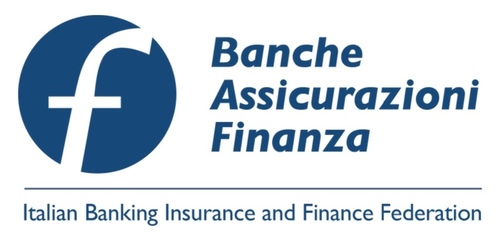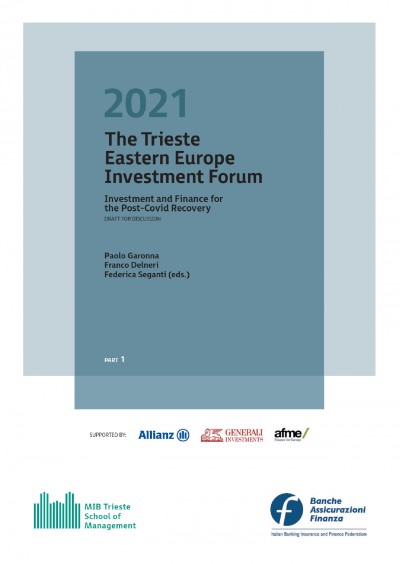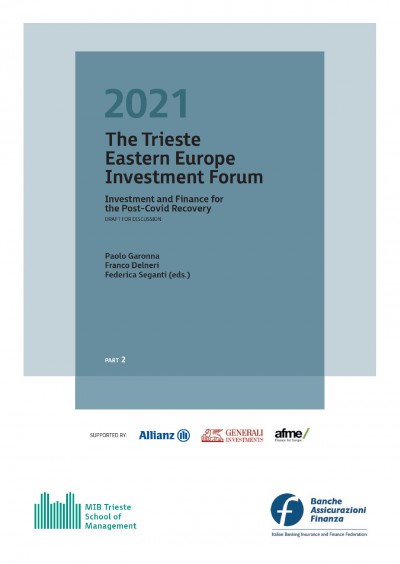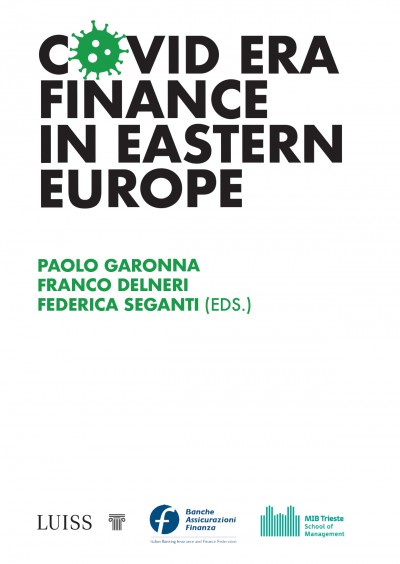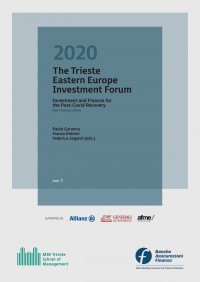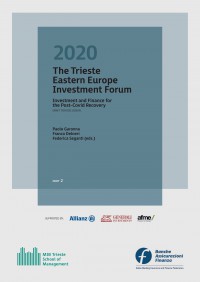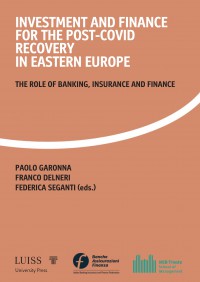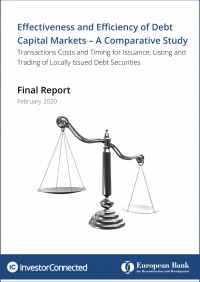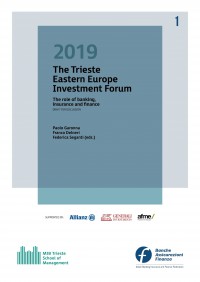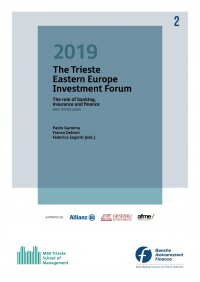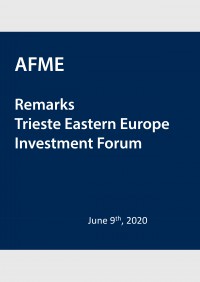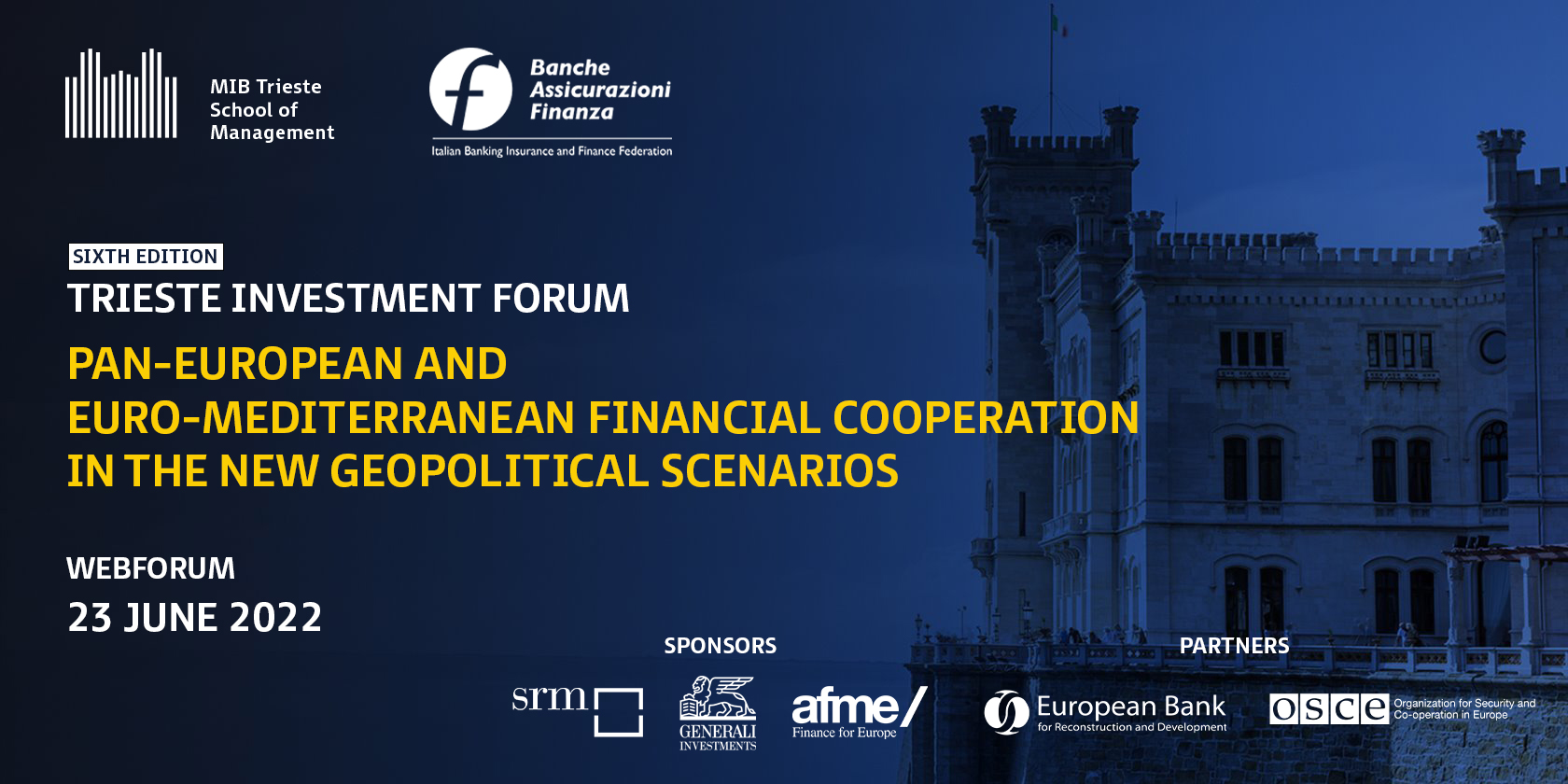
The Forum will be held on a digital platform. Registration is required.
Comunicato Stampa
14:00-14:05 – Commemoration Franco Delneri (1950-2022)
14:05-14:15 – OPENING
14:15-15:15 – SESSION 1 The War in Ukraine and the New Geopolitical Scenarios in Eastern Europe
The aggression to Ukraine and the war represent a watershed: what implications for financial cooperation and development?
- The humanitarian social and economic devastations of the war and the requirements for reconstruction and recovery;
- The economic and financial outlook for the short and medium term;
- The impact and implications of sanctions;
- The root causes of instability and conflict in the whole pan-European region. Is there scope for more and better conflict prevention, risk reduction and early warning?
- The EU response to the crisis and its role for enhancing security, stability, and growth in the pan-European region;
- The role of the private sector and in particular of banks, insurance and capital markets.
The Euro-Mediterranean region (EM) and Sub-Saharan (SSA) have been negatively affected by the conflict in multiple ways:
- the turmoil and price hikes in the energy markets created inflationary pressures, particularly in the non-energy producing economies;
- increases in food and agri-product prices threaten social and political stability in the region;
- chronic problems of over-indebtedness and balance of payments disequilibria constrain the fiscal and monetary response to the downturns;
- several countries in the EM and in Africa are still waiting for the support promised by the G20 in relation to vaccine rollouts (Covax financing) and allocation of SDRs.
Add to this that there are several areas of frozen or recent conflict with considerable risks of instability and social and political unrest. The EU has a vested interest in taking the lead in enhancing security and sustainable development in the EM and SSA. Have EU policies been adequate to that purpose? What else can be done? What partnerships in the field of energy can be established? What is the role of the financial sector?
16:25-17:25 – SESSION 3
The Financing of Investment Technology and Sustainable Development: Role of Banks, Institutional Investors and Capital Markets
The Eastern Europe region has financing gaps of an unprecedented size and urgency.
The recovery and reconstruction after the war in Ukraine, the requirements of the energy transition (diversification, sustainability, and geo-strategic security), the digital, climate and nature-based transitions, the exposure to multiple risks scenarios, including social fractures, health, political instability, etc. All this requires investment, and a critical mass of financing, particularly in relation to infrastructure and SMEs. Public budgets are strained and constrained by the debt overhang and the legacies of the financial and the pandemic crises. The role of the financial sector therefore is critical and of decisive importance. The banking sector must overcome fragmentation and the risk of non-performing exposures. The corporate sector has to be recapitalized and gain productivity and competitiveness through technology and greater firm size.
The session will discuss prospects for providing funding opportunities for investment through monetary and fiscal policy, structural reforms, development and integration of capital markets and effective financial eco-systems in support of innovation and expansion of productive capacity (private capital, PPPs, the funding escalator, etc.). The focus will be on the financing of infrastructure and SMEs, particularly cross-border sustainable and long-term financing. In addition, the discussion will address the ESG investment implications of the Ukrainian situation. How EE companies plan to comply with various ESG reporting requirements and the main implications of the carbon border adjustment tax on EE. Special emphasis will be on implications of the 2023 EU DLT pilot program, and its impact on all EU market participants and future market activities.
17:30-18:30 – SESSION 4
Protection Gaps in the New Risk Scenarios: The Role of Private Players, Insurance, Research
The different crises of the last two decades have shown the multiple vulnerabilities of the region and the social conflicts that accompany such vulnerabilities.
People have been exposed to several hazards (from epidemics to violence, from disasters to political upheavals, from unemployment to populism and social exclusion). The capacity of the traditional public welfare systems and public protection mechanisms to respond to growing and diversified needs has been eroded. At the same time, the role of the private sector to intervene and provide resources and customized help has emerged, e.g. the complementary pension systems and health care disability and nat-cat insurance, as well as life-long learning and long-term care.
How can Governments establish partnerships with the private sector to improve coverage and guarantee universal access to protection? Which reforms are needed in welfare and protection systems? How can international cooperation and dialogue provide valuable experience and best practice? What role for insurance? Can the EU assist in support of inclusiveness and education, including in the access to financial services?
18:35-19:35 – SESSION 5
The Future of Pan-European and Euro-Mediterranean Financial Cooperation in the Post-War Reconstruction and Recovery and Beyond?
The underlying idea is to discuss the chances and opportunities that banking and financial integration can represent for a present-day “Ventotene Moment”
created by the tragic and unjustifiable aggression underway, and for designing and projecting into the future a perspective of peaceful integration and cooperation encompassing the whole pan-European and Euro-Mediterranean region.
The process should be driven by investment, financial development and the EU leadership role for the whole Pan-European region’s prosperity, security and stability.
19:35-19:45 –
Conclusions
